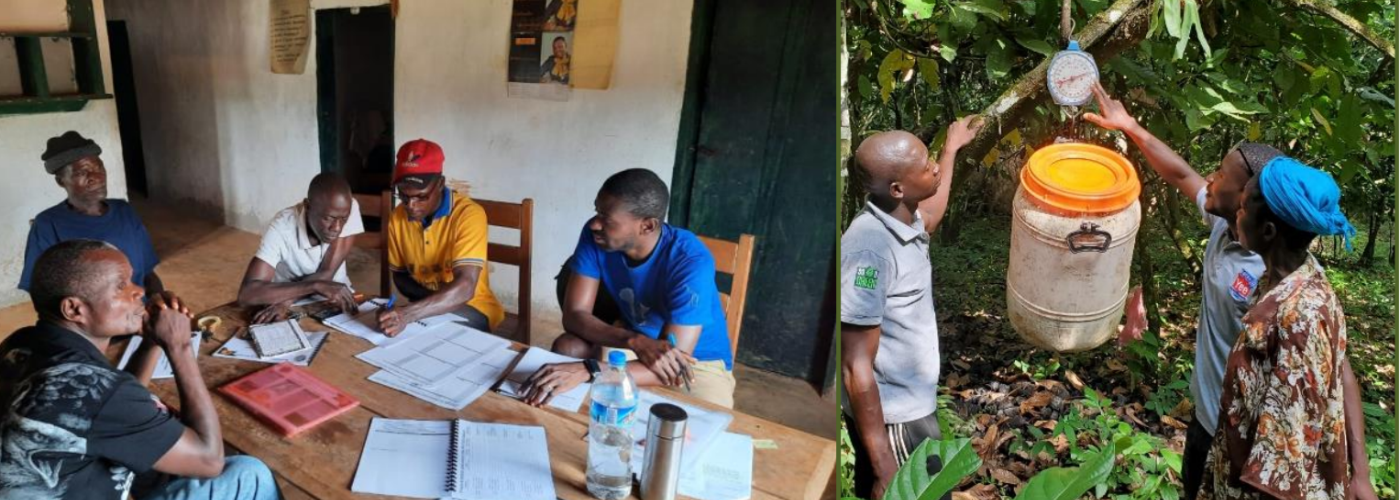Four Keys to Impactful Business Advisory in Liberia and Beyond – Lessons from GROW Liberia
Image

By Mark Wallace, Senior Technical Advisor
The private sector is critical to the growth and development of Liberia’s cocoa sector – as it is for all industries. In most cases, Liberia’s private sector requires support to professionalize, innovate and ready itself for the investment needed to propel this growth. Business advisory services play a valuable role here. But, quality offerings are sorely lacking in the market; many advisory companies and donor programs are failing to service Liberia’s agricultural industry with the in-depth and hands-on support that it requires.
Over time, GROW Liberia developed a business advisory approach that achieved meaningful results for our agribusiness partners and offers lessons for others in the market. It centered on deep, hands-on support, outreach to partners, leveraging adaptable products, and investing in a strong, well-networked team of local and global advisors.
This blog briefly outlines our learning and recommendations for providing business advisory to Liberia's agricultural industry. The full article, including case study examples, can be found here.
About GROW Liberia
GROW was an agribusiness and investment advisory program that partnered with key stakeholders to accelerate inclusive economic returns within high-growth industries in Liberia. Using a market systems development approach, GROW collaborated with 242 partners to increase incomes for 39,200 households, create 5,630 jobs, and facilitate $3.7m in partner investment. It was funded by Sida and implemented by Adam Smith International. GROW closed in June 2022.
Challenging Context
GROW’s approach to business advisory was influenced by Liberia’s context. Liberia is a challenging place to do business; limited business acumen and low skills, few private sector players, an unpredictable and shock-prone environment, and absent supporting services all characterize the Liberia market. In addition, Liberia has very poor infrastructure; there are few paved roads, and the long dirt tracks that are the main arteries to cocoa-producing counties turn into pits of mud during the rainy harvest season.
Alongside the contextual challenges in Liberia are the complexity of innovations that are increasingly required to compete in an international marketplace. As markets become more global, connected, and fast-paced, companies need to be able to respond and adapt. In the case of cocoa, for example, supply chain transparency, traceability, and sustainability are increasingly needed to trade internationally – requiring trading houses to make significant overhauls to operations – while also overcoming absent recordkeeping, poor literacy, and no digitization – in order to compete globally.
GROW’s Approach to Business Advisory
To compete globally while navigating the unique challenges of Liberia’s context, most companies and cooperatives require advice and guidance – this was a primary offering of GROW Liberia. We found that delivering intense and hands-on support, prioritizing outreach to partners, building adaptable products, and investing in a strong team with excellent networks was required for the delivery of good business advisory in Liberia.
1. In-depth support and hands-on coaching:
GROW’s technical assistance and capacity building was very hands-on. Capabilities differ vastly from partner to partner, and the contextual challenges in Liberia mean that you can’t do work at arm’s length or capacity building from a distance or in a group and expect to see results.
We found that spending considerable time with cooperatives and their farmers (and later traders, commercial farms, and export partners) not only enabled us to learn about local business norms to better understand the context but also about the huge variability in capacities of local partners – and thus how to tailor our support to the different types of partners in our portfolio. In this situation, some business innovations would be too complex for some cooperatives and too basic for others, a one-size-fits-all approach does not work.
Regardless of the type of innovation, though, we found that it was necessary to significantly increase our engagement with partners across the board. We deployed staff across rural Liberia, spent a lot of one-on-one time delivering in-depth and tailored business advisory and follow-on coaching, and helped our partners to analyze their data and course-correct constantly. In the end, this not only helped us to spur faster and broader growth through our core partners but established trust and credibility that led to wider sector influence and additional partnerships.
2. Outreach, outreach, outreach
The farmers and households whose incomes and wellbeing we’re hoping to improve are often located in rural, remote settings. Between Monrovia, the capital city, and rural areas, there is a huge asymmetry in information, in infrastructure, and in capabilities. To properly understand the nuance of the contextual challenges, and work on these challenges with partners, you have to put in the time and the effort in their offices, fields, and communities.
We prioritized time in the field. GROW kept junior staff in rural counties, and our senior advisors constantly travelled throughout the cocoa belt. Because it’s so remote and the roads can be so bad, it takes a lot of time, but it’s what is needed to get those touch points and to get that face time with partners, and to see if interventions are working in real-time, and what needs to be changed right away. You can’t do it over the phone, and you can’t do it quarterly.
3. Build-out products that could be adapted to each client
Just as cohort-style training does not work when partner capacities are variable, neither do one-size-fits-all training materials and tools. At the same time, it’s not realistic to build individual tools for each partner. At GROW, we built standard training and business tools that follow requisite business principles, but that could also be adapted and tweaked based on a partner’s specific needs and abilities. This allowed us to save on resources on one hand, and to also have more effective materials, on the other. This also allowed us to publish and distribute these products so that they can be used in Liberia after the end of the GROW program. Their adaptability will make them useful in the long term, especially compared with specific tools and training. A list of these resources can be found here.
4. Build a strong team, leverage networks: None of the above – bespoke advisory, one-on-one time in partner settings, and quality, adaptable business development tools – would be possible without the right group of people
We spent a lot of time and effort in finding the right people for the right jobs. We hired commercially minded and growth-oriented local team members and invested in their capacity. We also bolstered their work with strong technical consultants and experts from around the global, often networked to the global cocoa supply chain. Flexibility, creativity, and a willingness to learn were requisite qualities of all team members.
Common mistakes by development programs in Liberia resulting in poor advisory
Lack of understanding:
- Not enough invested in one-to-one time with partners
- Interventions are developed outside of the nuanced local context
- Donors do not fully understand disparate capabilities
Intervention design:
- One-size-fits-all approach doesn’t work
- Interventions are not fit-for-purpose
- Modularized or cohort-style training is too generalized
- Not enough emphasis on the sustainability of interventions
- Too much focus on providing assets instead of building capabilities
Implementation and team:
- Not enough field presence and accompaniment with rural and low-capacity partners
- Hire adaptable generalists with solid business acumen
- Prioritize hires with broad networks
Conclusion
There is a level and depth of business support that is needed in contexts like Liberia that many development programs often fail to achieve. This level of support takes a lot of time and effort and must be planned and budgeted appropriately.
As a result of this effort, GROW found that companies learned and adapted more quickly, while innovations seemed to be better sustained and more easily replicated – helping us to better accomplish transformative and inclusive growth for Liberia’s cocoa industry and farmers.


